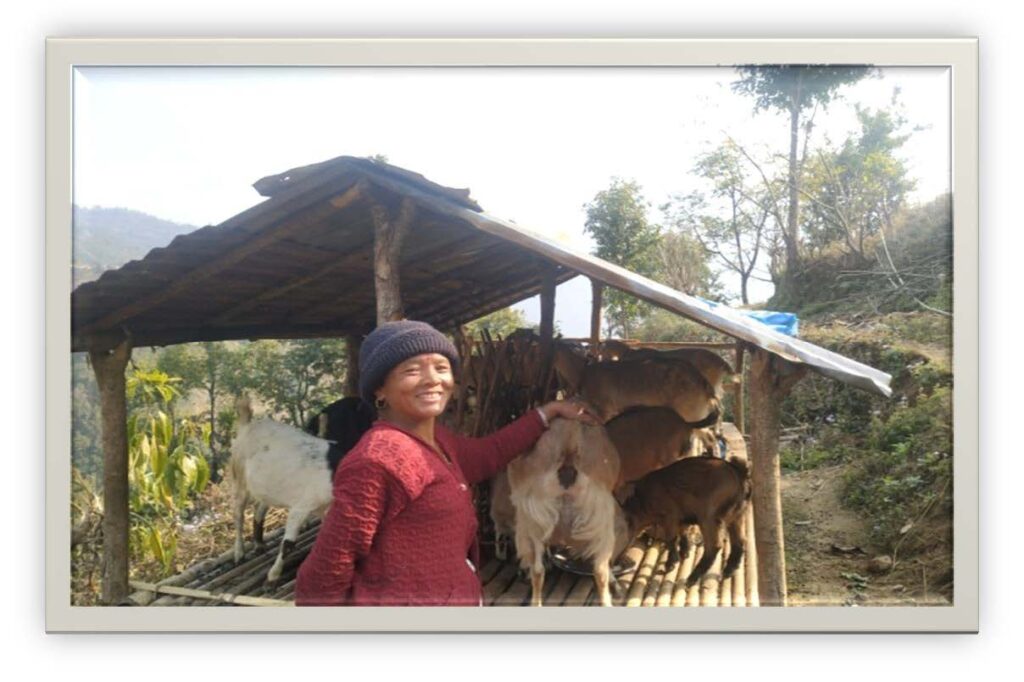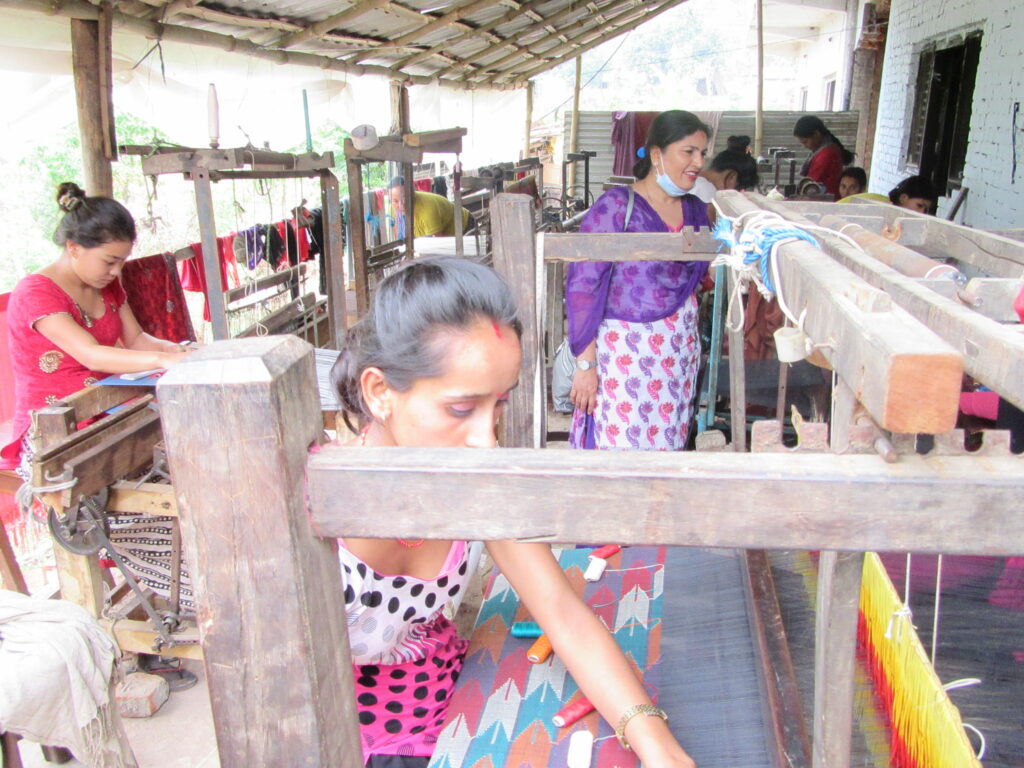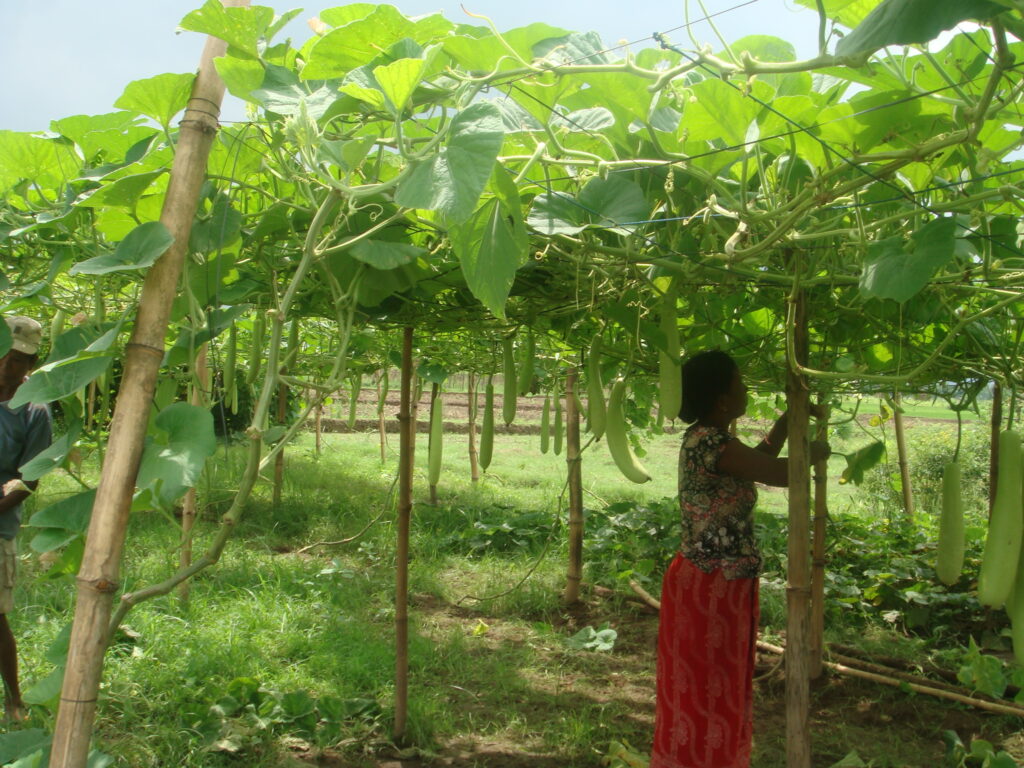Assignment Name: | Community Based Seed Production And Marketing | |
Country: | Nepal | |
Location Within Country: | Sindhuli District | |
Professional Staff Provided by Your Consultant/Entity (Profile): | 4-Professional Staff (Min Raj Bhandari-Team Leader,) | |
Name of Client: | National Agriculture Research and Development Fund (NARDF) | |
Address: | Kathmandu, Nepal | |
Number of Staff Months: | 116 Months | |
Duration of Assignment: | Start Date (Month/Year): February, 2013 | Completion Date (Month/Year): August, 2015 |
Approx. Value of Services Proposal: | National Level: Nrs 1,996,000.00 International Level: US$ | |
Name of Associated Consultant, If Any: | Not Applicable | |
No. of Staff Provided by Associated: | Not Applicable | |
Value of Services: | NPR 1,996,000.00 | |
Source of Financing: | National Agriculture Research and Development Fund (NARDF) | |
Name of Senior Staff and Designation (Project Director/Team Leader/Coordinator etc) involved and Function Performed: Name: Mr. Min Raj Bhandari, Designation: Team Leader Performed Function: Activity and resource planning, Organizing and motivating a project team, Controlling time management, Cost estimating and developing the budget, Ensuring client and beneficiaries’ satisfaction, Analyzing and managing project risk, Monitoring progress, Managing reports and necessary documentation of project. | ||
Narrative Description of the Project: This Community Based Seed Production (CBSP) of maize is one of the NARDF funded projects carried out in Jalakanya and Bhimsthan VDCs of Sindhuli district for envisioning active participation of women, underprivileged groups of dalits & janajatis and marginalized farmers during the project implementation. The project aims at ensuring food availability situation and improving the living conditions of smallholder farmers through maize seed based income-generating opportunities in the project area. | ||
Description of the Actual Services Provided by Your Staff: Inception workshop: An interaction program was organized at district level to share the information about the proposed project and its targeted objectives to district based concerned organizations. Baseline Study: A baseline survey was carried out by the project team to find out the geographical variation of the site, socio-economic conditions of the local people, farming systems, situation of irrigation, maize production & productivity and diversity of local/improved maize varieties using participatory tools. Farmer’s selection for demonstration: Four Farmers groups were formed and farmers were selected in the cluster basis. 20 farmers were selected for demonstration of different maize varieties for seed production and 87 farmers were involvement in seed production programme. Farmer’s orientation on Participatory Varietal Selection (PVS): Orientations on participatory Varietal Selection (PVS) was carried out for the selected project beneficiaries in each location of the project area. One day orientation on PVS was organized in 4 sites of the project location. Varietal demonstration: Five improved maize varieties namely Rampur composite, Manakamana-3, Manakamana-6, Poshilo and Deuti were selected to test in PVS. Each variety was given to 5 different farmers in one group. Hence 20 farmers were provided with improved variety in the whole project area. Farmers followed their usual planting time and methods, fertilizer application and intercultural operations. Improved Varieties will be compared with the farmers’ own variety under farmer’s management. Evaluation training: This session of training was on pre-evaluation on improved maize demonstration on each site. Resource Person facilitated the participatory evaluation, measurement of objectives and achievement using indicators and draw lessons from the action. Evaluation of pre-harvest and post-harvest traits: Different varieties of maize were evaluated using qualitative and quantitative information. Two forms of interactions were used to obtain information i.e. individual and group level. Individual farmer for HH level interview was taken which was focused on pre, and post-harvest traits of maize. Group management and record keeping training: Farmers were trained on group management and record keeping skill. One day training was organized in program VDCs. About 20 participants were participated in the training and learned on production plan, group management and record keeping. Seed production training: One day seed production training was conducted for all group members. It was organized before sowing focusing on general cultivation practices for maize seed crop, for example, land preparation, sowing methods, intercultural operation and isolation distance, roughing off-types, diseased and other abnormal plants including post harvest and storage techniques. Seed purchase and distribution: Foundation seed Manakamana-3 and Rampur composite were collected from National Maize Research Program, Rampur and NARC station, Lumle. Farmers were provided with 4-10 Kg of seed depending upon the availability of farmers land and other feasibilities. Market survey: A district level market survey was carried out to know the existing marketing system of the maize seed. The existing cooperatives, agro-vets and seed company were visited to identify demand and supply scenario of seeds in the district. Marketing workshop: A functional marketing linkage was established with the involvement of local agro-vets, seed companies and farmers groups working on maize improvement sectors. A workshop was organized at the district headquarter with the involvement of about 20 participants from community, CBOs, agro-vets and DADO. Public hearing: A public hearing was organized in the community with the involvement of DADO’s officers and other stakeholders of the project VDCs. Project activities, achievements and financial status was presented by project coordinator. Some concerns and queries of participants were clarified by project coordinator and DADOs representatives at that time. Seed certification: Seed certification for quality assurance was started in the project area with the help of DADO and regional seed laboratory, Hetauda. Technicians from these institutions were invited to monitor the standing crops before harvesting. Seed samples were collected and tested in the regional seed laboratory and thus provided seed report before marketing of seeds. Develop extension materials: Leaflets and booklets were prepared and widely disseminated to the farmers. The leaflet was in simple Nepali language containing information about maize seed production technology. About 1000 leaflets and 500 booklets were produced and distributed to farmers and concern stakeholders for wider dissemination of seed production technologies. District level workshop: At the end of the project period, one district level workshop was organized in Kamalamai municipality of Sindhuli district. The purpose of the workshop was to discuss and disseminate the project findings. It was also focused on sustainability of maize seed production in coordination with concern stakeholders in the district. Senior Agriculture Development Officer, representative of ago-vets, cooperatives members, farmers groups and MADE technicians actively participated in the workshop. DADO was committed to support for farmers groups on storage facility. | ||




